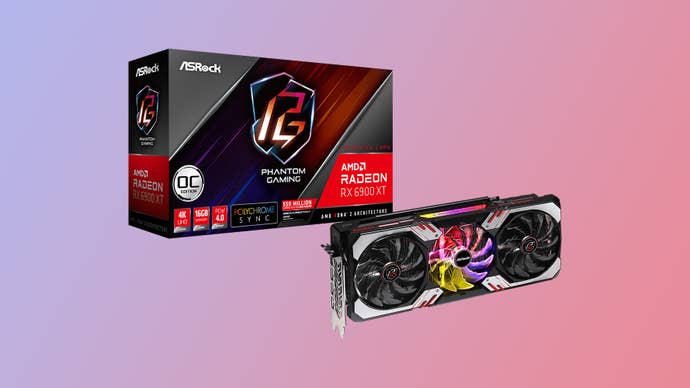Get AMD's former fastest graphics card for $500 at Newegg when you buy an open box model
The ASRock RX 6900 XT Phantom Gaming D is one of the fastest variants too.

AMD's flagship RDNA 2 graphics card, the RX 6900 XT, continues to drop in price over in the US. Right now you can pick this once-fastest-ever Radeon GPU for just $500 when you buy an open box model from Newegg. That's outstanding, given that this card cost twice as much when it debuted in 2020.
This is the fancy AsRock Phantom Gaming D model too, which brings a snazzy design and a faster 2340MHz boost clock (versus 2250MHz on the vanilla spec).
So is the RX 6900 XT still worth considering in 2024? It's obviously been a while since the card's heyday, but it's still quite a powerful option for anyone that values rasterised performance over RT performance, with a hefty chunk of VRAM - 16GB - as a bonus. That latter point makes it a good choice for a video production machine, or other use cases that use a lot of VRAM like 3D modelling or scientific computing.
In terms of missing features, AMD's new FSR 3 frame generation tech works fine on "last-gen" RX 6000 graphics cards like the RX 6900 XT - versus DLSS 3 which is only available for the latest series of Nvidia GPUs. Similarly, AMD's Fluid Motion Frames, a kind of more limited but almost universal frame generation tech that doesn't require developer input, was initially announced as being an RX 7000 exclusive but now works on RX 6000 cards too. The only thing you're really missing out on is Anti-Lag+, a latency-reducing feature that is built in by developers versus vanilla Anti-Lag that which works more universally without developer input.
The big question here is whether the RX 6900 XT is better than the RX 7800 XT, which is in a similar price and performance class - you can get a very basic reference model for around $510 at Newegg, for instance, which ought to perform within five percent or so of the RX 6900 XT. I'd be tempted to go for the newer 7800 XT, as it's a bit more power-efficient, but both cards are viable options I'd say, with both being capable of performance advantages depending on the game chosen.
